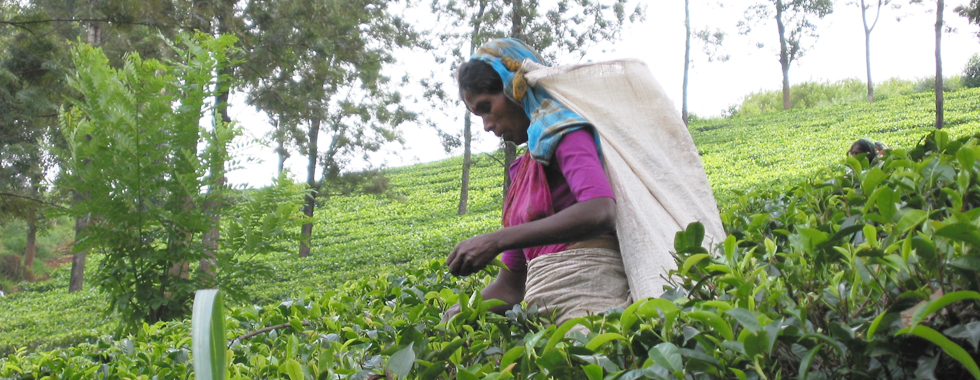Plantations were the lifeblood of the nation for many years, says PA chairman
View(s):The ‘honeymoon’ of the plantation industry in Sri Lanka appears to have been over, long ago, as the government has thrown it to the back-seat of the country’s economy, now . Reflecting this attitude, Dr, P B Jayasundara, Secretary to the Ministry of Finance and Treasury said that in the 1950s the plantation industry was very powerful and was able to dictate terms to the government with the plantation industry accounting for a huge 40 per cent of the GDP, but today it is merely less than 5 per cent of the GDP.
He quipped that the plantations industry is sleeping in the incubators enjoying unbelievable luxury and a comfortable life and that “now the whole plantation industry is less than 5 per cent of the GDP and their role has (been) taken over by somebody else”.
Dr. Jayasundara, was speaking as the Chief Guest, at the 160th AGM of the Planters Association of Ceylon (PA) held last week in Colombo.
His reaction would have been as a response to Roshan Rajadurai, PA Chairman, listing a series of difficulties facing the plantation industry, in particular the tea industry of the country and saying that the industry is in a desperate situation.
Dr. Jayasundara said that in the 1950s the plantation sector did well for a successful tea, rubber, coconut economy supported by at that time the most modern infrastructure, highways, railway, port, storage facilities and logistic facilities.
For nearly one and a half hours, Dr. Jayasundera elaborated the new economic trend setters that takes Sri Lanka into a superior position in development and prosperity, with such activities like apparel , ICT, etc and commented that soon the apparel industry in Sri Lanka would achieve a place among the best 10 in the world.
Mr. Rajadurai placed before Dr Jayasundara the grave situation facing the plantations sector and said that these grievances are significant and serious.
Quoting history, he said that in 1824, George Byrd started coffee; James Taylor – tea in 1866 and in 1875 Henry Wickham established rubber plantations in Sri Lanka, and they would not have thought that these plantations would lay the foundation for a vibrant plantation industry that would be the life blood of the nation for over a century.
The fact remains, Mr. Rajadurai said that the industry has contributed to the economy in no small manner for the sustainable development of the country. He pointed out that the country’s fortunes in the past have been closely associated with the industry and it was the foundation for the post-independence modern development of the country.
Sustaining 160 years is an outstanding achievement, he said and their predecessors have consolidated and directed a great agricultural enterprise in the country which continued until the late 1970s and whatever the critics say the PA has contributed a great service to the nation. He said the planters voluntarily contributed one fourth the cost of construction of the Kandy – Colombo railway line and maintained and operated hospitals in the plantation areas.
He said that in the 1940s tea earnings alone contributed to 90 per cent of all export earnings of the country and in the 1950s tea alone contributed 37 per cent of the GDP. But with the accelerated diversification and the broad-basing of the economy in the 1970s with the open economy coming in development commenced in manufacturing, industrial and services sectors resulting in relative declining in the plantations sector.
The plantation crops alone without any value addition at the estate level, he said, to the local economy is close to Rs. 77 billion per year. It also contributed to plantation tourism, hydropower, etc. He said that the Regional Plantation Companies (RPCs) take care of a population of over 1.1 million people. RPCs cultivate only 36 per cent of the tea land, he said in which it produces 30 per cent of the national green leaf production.
Mr. Rajadurai said that after 22 years of privatisation of the plantation industry some would have forgotten the reasons that led the government to privatise plantations in 1992 and when the estates were handed over to 23 RPCs. Up to that time the government, he said had incurred an annual operational loss of Rs. 1.5 billion per year while the Treasury had to subsidise Rs. 400 million per month and had it continued, he said the loss would have been a massive Rs. 100 billion.
He elaborated the massive achievements and contributions made to the economy and to uplift the living conditions of the plantation workers, but the challenges are immense, he said, such as Sri Lanka having the lowest land productivity in tea lands in the world while the cost of production continues to be the highest in the world.
To maintain the high quality of tea and to sustain the livelihood of the people in the plantations, replacing and replanting the aging tea bushes is vital which would cost around Rs. 3.5 million per hectare, he said. He said that for this purpose they need low interest funding.
Despite the high cost, Mr. Rajadurai said that two thirds of the extent has been planted by the RPCs in the past 22 years. To sustain this precarious situation, he urged the government to demonstrate a definite commitment about the long term leasehold rights and extend the present tenure of the leases as plantation crops have a long gestation period of over six years before the crops are brought into production. (QP)


